
Wicklow Mountains: Ireland's Serene Wilderness
Nestled in the heart of Ireland, the Wicklow Mountains offer a tranquil escape into nature's beauty. This vast landscape is characterized by rolling hills, deep valleys, and sparkling lakes. It's a haven for hikers, with trails suitable for all levels, from leisurely walks to challenging climbs. The famous Wicklow Way, a 131-kilometer trail, provides an unforgettable experience through this stunning area. One of the highlights of the Wicklow Mountains is the enchanting Glendalough. This ancient monastic settlement, surrounded by breathtaking scenery, dates back to the 6th century. The serene lakes and well-preserved ruins tell the story of Ireland's rich history and are a must-visit for any traveler. Beyond natural beauty, the Wicklow Mountains are also home to a variety of wildlife. Keep an eye out for red deer, wild goats, and an array of bird species. Whether you are a nature enthusiast, history buff, or simply looking to unwind, the Wicklow Mountains offer a perfect getaway that blends adventure with tranquility.
Local tips in Wicklow Mountains
- Wear sturdy hiking boots; trails can be uneven and muddy, especially after rain.
- Visit early in the morning to avoid crowds, especially at popular spots like Glendalough.
- Pack layers of clothing; weather in the mountains can change quickly.
- Check local guides for seasonal flowers and wildlife to make the most of your trip.
- Bring a map or download offline maps as mobile signal can be weak in some areas.
- Stop by a local pub in one of the villages for a traditional Irish meal and a pint of Guinness.
Wicklow Mountains: Ireland's Serene Wilderness
Nestled in the heart of Ireland, the Wicklow Mountains offer a tranquil escape into nature's beauty. This vast landscape is characterized by rolling hills, deep valleys, and sparkling lakes. It's a haven for hikers, with trails suitable for all levels, from leisurely walks to challenging climbs. The famous Wicklow Way, a 131-kilometer trail, provides an unforgettable experience through this stunning area. One of the highlights of the Wicklow Mountains is the enchanting Glendalough. This ancient monastic settlement, surrounded by breathtaking scenery, dates back to the 6th century. The serene lakes and well-preserved ruins tell the story of Ireland's rich history and are a must-visit for any traveler. Beyond natural beauty, the Wicklow Mountains are also home to a variety of wildlife. Keep an eye out for red deer, wild goats, and an array of bird species. Whether you are a nature enthusiast, history buff, or simply looking to unwind, the Wicklow Mountains offer a perfect getaway that blends adventure with tranquility.
When is the best time to go to Wicklow Mountains?
Iconic landmarks you can’t miss
Glendalough Visitor Centre
Explore the breathtaking landscapes and rich heritage at the Glendalough Visitor Centre in County Wicklow, where history meets nature.
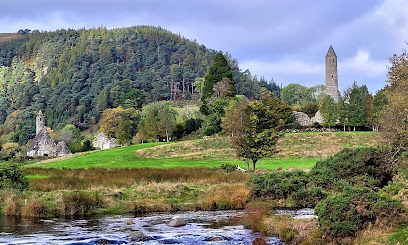
Miners Village
Explore Miners Village in Wicklow, a captivating tourist attraction rich in mining history and surrounded by breathtaking landscapes.
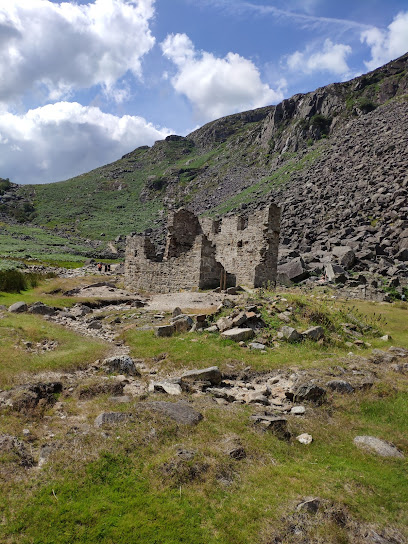
Great Sugar Loaf
Explore the stunning Great Sugar Loaf in Co. Wicklow, offering breathtaking views and a memorable hiking experience in the heart of Ireland's natural beauty.
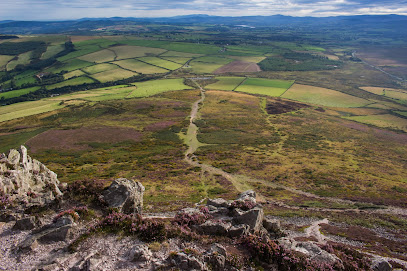
Fairy Castle
Discover breathtaking views and captivating trails at Fairy Castle, the scenic mountain peak of Co. Dublin offering a perfect escape into nature.
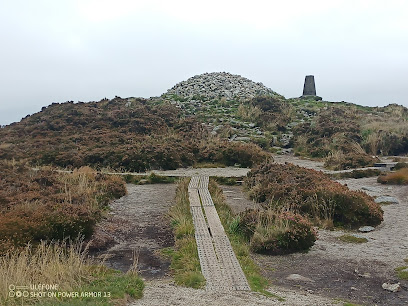
Lugnaquilla
Discover the breathtaking beauty of Lugnaquilla, Ireland's highest peak, and experience unforgettable hiking adventures in Co. Wicklow.
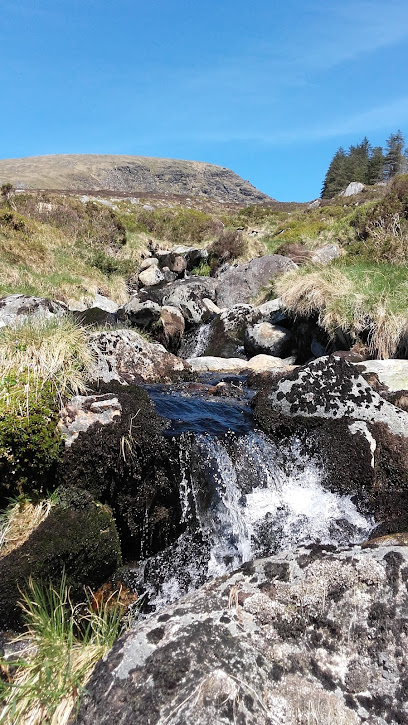
Djouce
Explore Djouce, a breathtaking mountain peak in Co. Wicklow, offering stunning views, diverse trails, and a rich connection to Ireland's natural heritage.
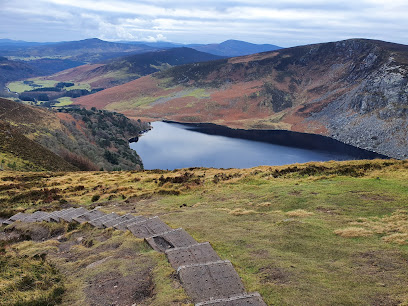
St. Kevin's Bed
Explore the serene beauty and rich history of St. Kevin's Bed in Glendalough, a hidden gem in County Wicklow that captivates every visitor.
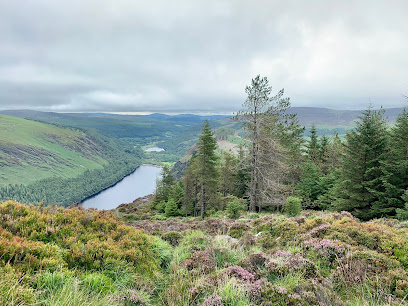
Tonelagee
Explore Tonelagee, a breathtaking mountain peak in Co. Wicklow, perfect for hiking and soaking in stunning Irish landscapes.
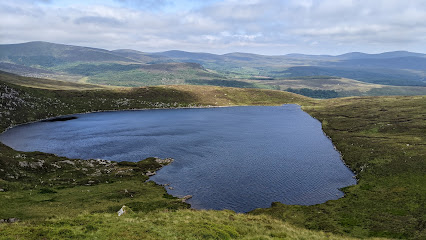
Kippure
Discover the breathtaking beauty of Kippure, a majestic mountain peak in County Wicklow, perfect for hiking and nature lovers seeking adventure.
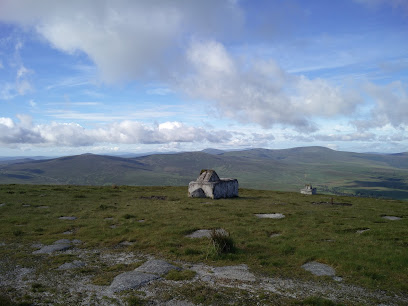
Luggala
Explore Luggala, the breathtaking mountain peak in Wicklow, where stunning landscapes and rich history create an unforgettable adventure.
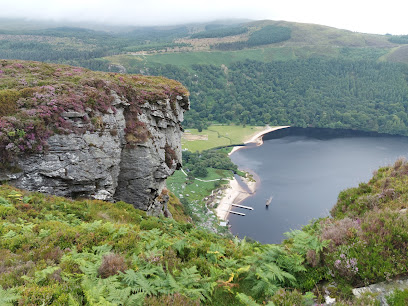
Maulin
Discover the breathtaking beauty of Maulin, a striking mountain peak in Co. Wicklow, offering stunning views and invigorating hikes amidst nature's serenity.
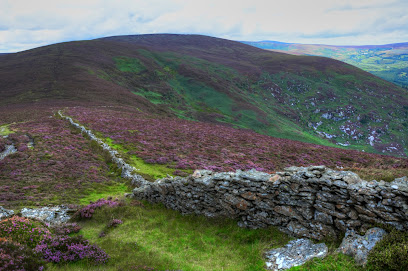
Turlough Hill
Explore Turlough Hill in County Wicklow - A breathtaking mountain peak perfect for hiking and immersing in Ireland's stunning natural beauty.
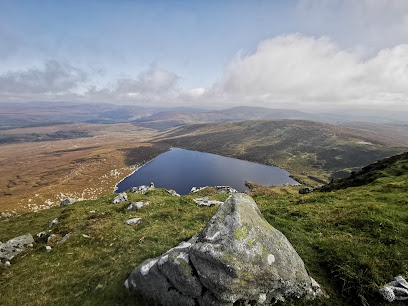
Mullaghcleevaun
Discover the breathtaking beauty of Mullaghcleevaun, the second-highest peak in the Wicklow Mountains, offering stunning views and thrilling outdoor adventures.
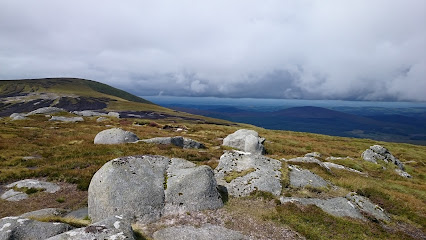
Scarr
Discover the stunning vistas and invigorating trails of Scarr Mountain in Co. Wicklow, a paradise for nature lovers and adventure seekers alike.
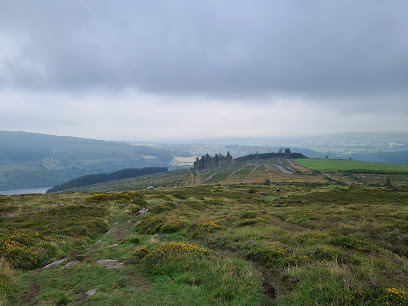
Church Mountain
Explore the stunning vistas of Church Mountain in Co. Wicklow, where nature and adventure blend seamlessly for an unforgettable experience.
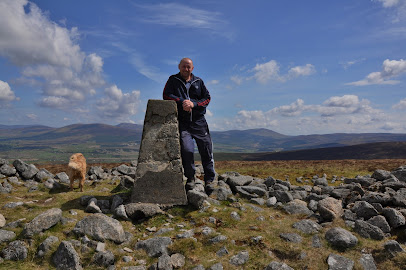
Unmissable attractions to see
Killiney Hill Park
Discover the breathtaking beauty of Killiney Hill Park, a serene escape in Dublin with stunning views and scenic walking trails.
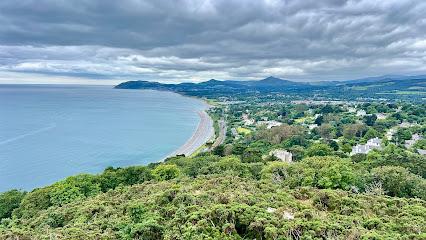
Iveagh Gardens
Experience the serene beauty of Iveagh Gardens, Dublin's hidden oasis filled with lush landscapes and historical charm.
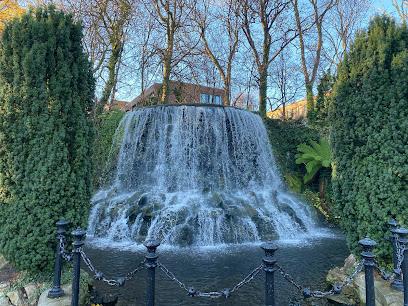
The Dining Room at Fallon & Byrne
Experience the culinary art of Ireland at The Dining Room at Fallon & Byrne, where fresh ingredients meet a vibrant atmosphere in Dublin.
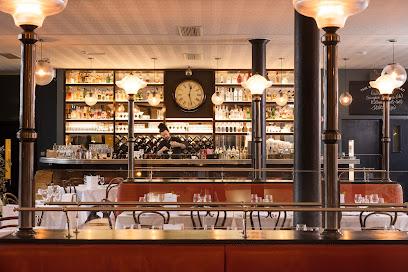
The Blue Light
Discover the lively atmosphere of The Blue Light, a must-visit pub in Dublin with stunning views, delicious food, and authentic Irish hospitality.
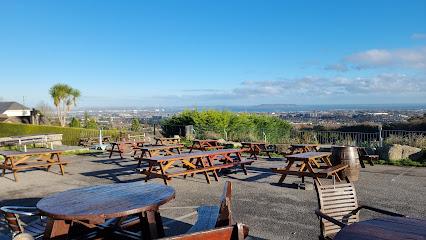
Irish National War Memorial Gardens
Discover the serene beauty of the Irish National War Memorial Gardens, a poignant tribute to World War I soldiers amidst Dublin's vibrant landscape.
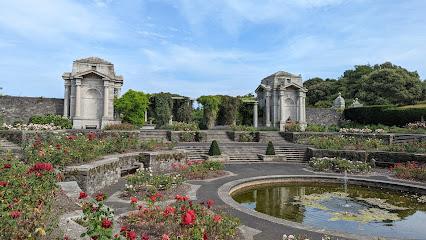
The Oval Bar
Experience authentic Irish hospitality at The Oval Bar, a lively hub in Dublin's North City, perfect for dining and socializing.
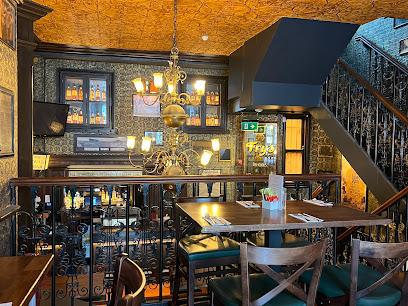
Poolbeg Lighthouse
Explore the historic Poolbeg Lighthouse in Dublin, a stunning landmark with breathtaking views and rich maritime heritage, perfect for your travel memories.
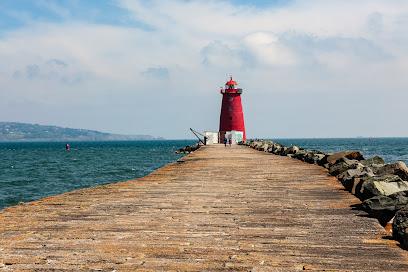
Abbey Theatre
Discover Ireland's rich theatrical heritage at the Abbey Theatre, the National Theatre of Ireland, where culture and performance come alive.
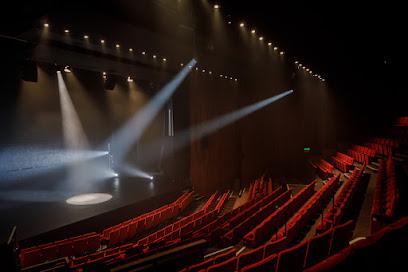
Howth Cliff Walk (Green Route)
Discover stunning coastal views and vibrant wildlife along the Howth Cliff Walk near Dublin, an unforgettable adventure for nature lovers.
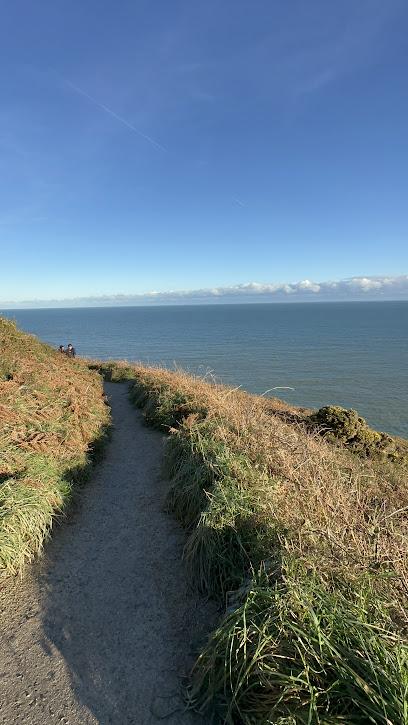
Clara Lara Funpark
Experience thrill and adventure at Clara Lara Funpark, a premier amusement park in the heart of Co. Wicklow, surrounded by Ireland's natural beauty.
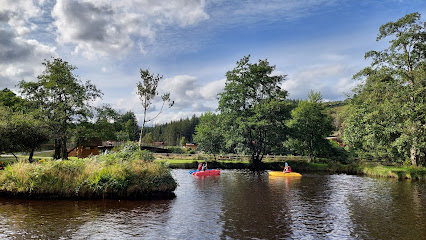
Glasnevin Cemetery
Discover the rich history and serene beauty of Glasnevin Cemetery, a historic site in Dublin honoring Ireland's notable figures.
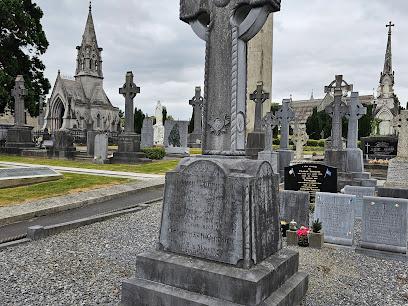
The Hell Fire Club
Explore the haunting beauty and rich history of The Hell Fire Club in the Dublin Mountains, a must-visit landmark for every traveler.
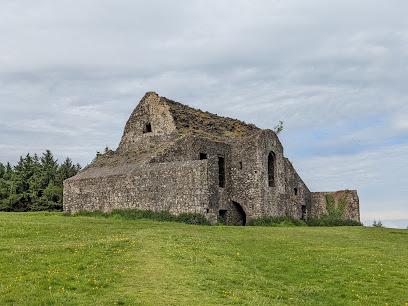
Glendalough
Explore the stunning landscapes and rich history of Glendalough, a national park in County Wicklow, perfect for hiking and nature lovers.
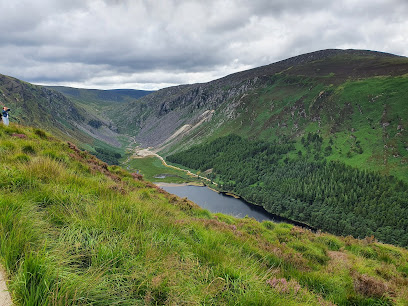
Bray Head Cliff Walk
Explore the breathtaking views of the Bray Head Cliff Walk, a stunning hiking trail along the Irish coastline with picturesque landscapes and vibrant nature.
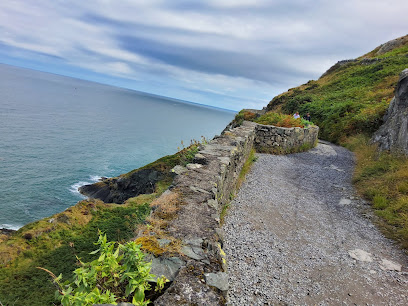
The Royal Hospital Kilmainham
Discover the rich history and stunning architecture of The Royal Hospital Kilmainham, a cultural gem in the heart of Dublin, Ireland.
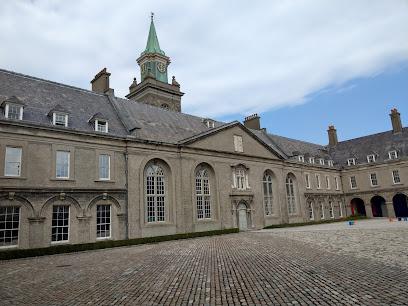
Essential places to dine
Johnnie Fox's Pub
Discover the charm of Johnnie Fox's Pub in Glencullen – an iconic Irish pub offering delicious food and live music amidst breathtaking scenery.
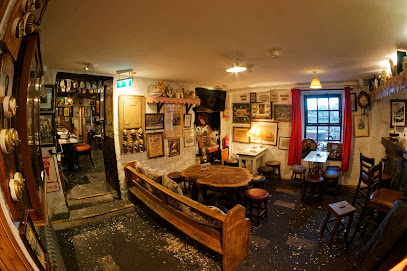
Wicklow Heather Restaurant
Discover Wicklow Heather Restaurant: A local culinary treasure offering fresh Irish cuisine amidst breathtaking scenery.
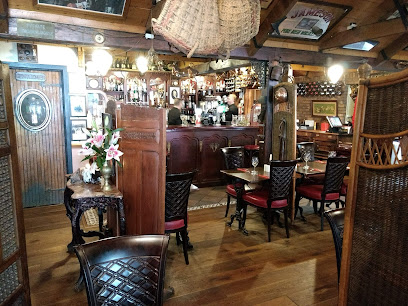
Butler & Barry
Experience authentic Irish cuisine at Butler & Barry, a charming gastropub in Bray offering delicious dishes and stunning coastal views.
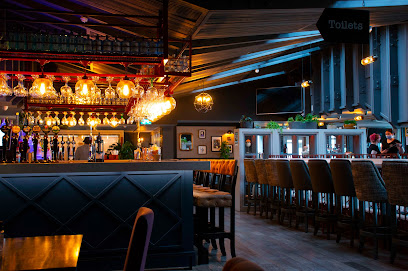
The Glenmalure Lodge
Discover traditional Irish hospitality at The Glenmalure Lodge - your perfect retreat in Wicklow's breathtaking landscapes.

Killruddery House & Gardens
Discover the historical charm and natural beauty of Killruddery House & Gardens in Co. Wicklow - a perfect blend of culture and tranquility.
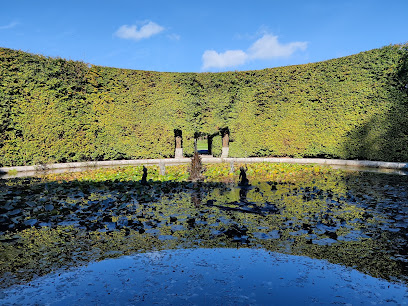
The Bridge Tavern
Experience authentic Irish hospitality at The Bridge Tavern - your go-to gastropub in Wicklow for delicious food and cozy stays.
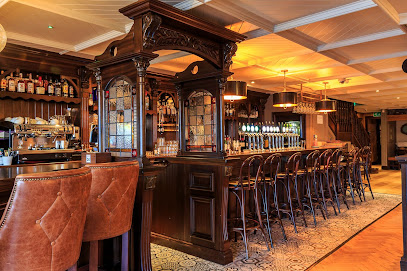
The Brass Fox Wicklow
Discover The Brass Fox in Wicklow - where traditional Irish flavors meet modern dining in a vibrant atmosphere.
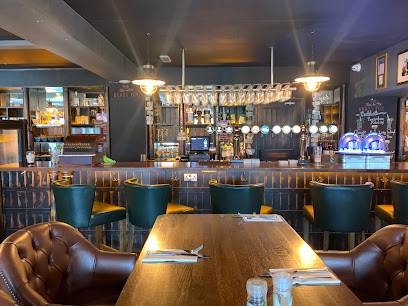
Hollywood Cafe
Discover the delightful flavors of Hollywood Cafe in Co. Wicklow - where breakfast meets warmth and local charm.
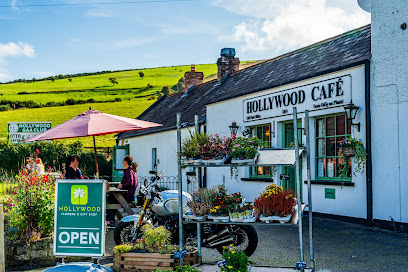
West Wicklow House Blessington
Discover the culinary delights at West Wicklow House in Blessington – where traditional Irish flavors meet modern gastronomy.
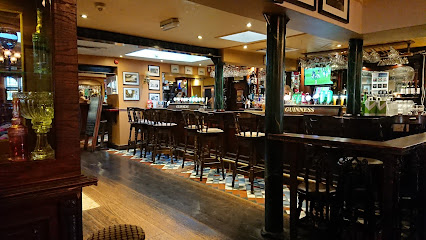
Chester Beatty Inn
Experience the best of Irish hospitality at Chester Beatty Inn, where delightful dining meets cozy accommodations in scenic Ashford.
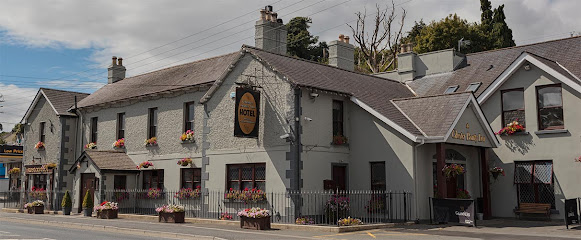
Parkview Hotel
Discover elegance at Parkview Hotel: your perfect getaway in Co. Wicklow with fine dining and stunning scenery.

Grove Bar
Discover Grove Bar in Delgany: where traditional Irish pub charm meets modern dining excellence in scenic County Wicklow.
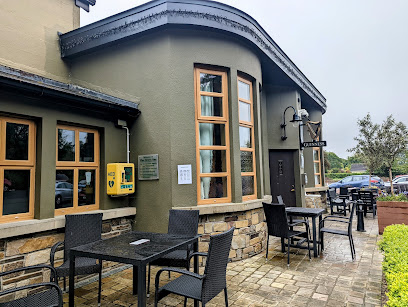
Byrne & Woods Bar & Restaurant
Discover authentic Irish dining at Byrne & Woods Bar & Restaurant in Co. Wicklow - where tradition meets modern flavor.
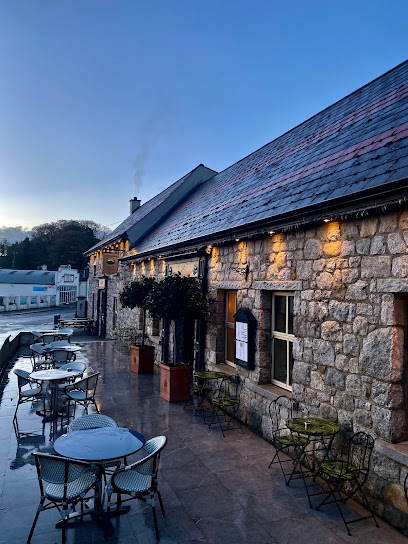
The Horse and Hound, Delgany
Experience authentic Irish hospitality at The Horse and Hound in Delgany—where great food meets exceptional local brews.
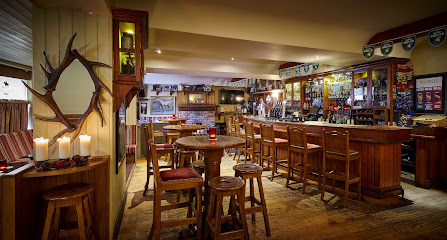
The Enniskerry Inn
Discover The Enniskerry Inn: Where Traditional Irish Hospitality Meets Modern Dining in Stunning County Wicklow.
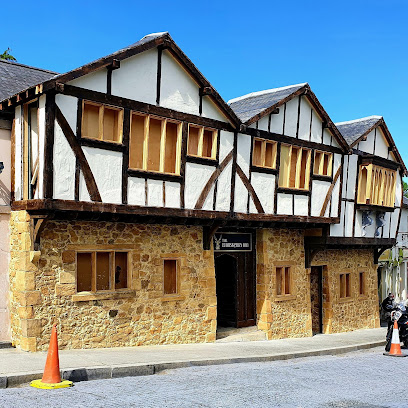
Markets, malls and hidden boutiques
Avoca Kilmacanoge
Discover the charm of Avoca Kilmacanoge, where gourmet food, unique gifts, and a cozy café await in the heart of County Wicklow.
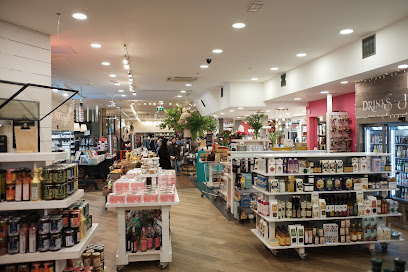
Avoca Powerscourt
Experience shopping and dining in the picturesque setting of Avoca Powerscourt, where local crafts meet delicious café delights in Co. Wicklow.
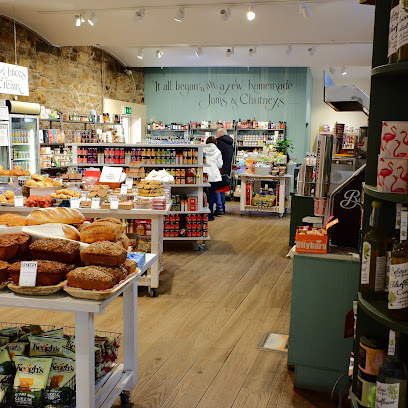
Fishers of Newtownmountkennedy Department Store
Explore fashion, gifts, and a cozy café at Fishers of Newtownmountkennedy, a unique shopping experience in beautiful County Wicklow.
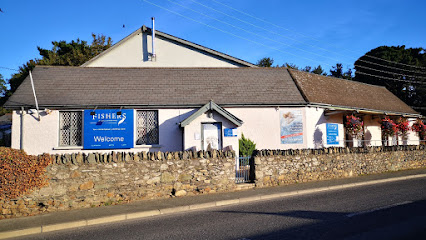
The Roundwood Stores
Discover fresh produce and unique local goods at The Roundwood Stores, the heart of Roundwood in Co. Wicklow, Ireland.
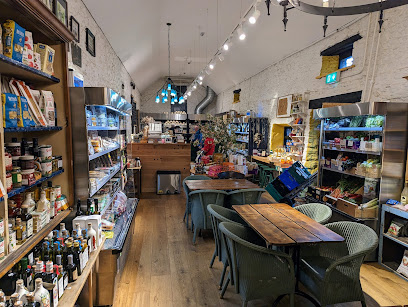
Byrnes Giftware & Furniture
Discover unique gifts and quality furniture at Byrnes Giftware & Furniture, Wicklow's charming shopping destination for tourists and locals alike.
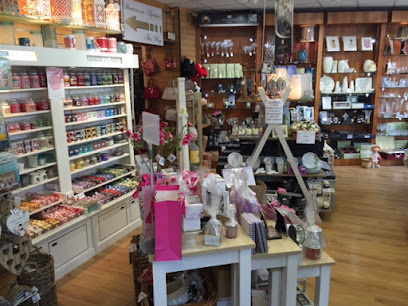
Glendalough Woollen Mills
Discover authentic Irish craftsmanship at Glendalough Woollen Mills, where tradition meets the natural beauty of Co. Wicklow.
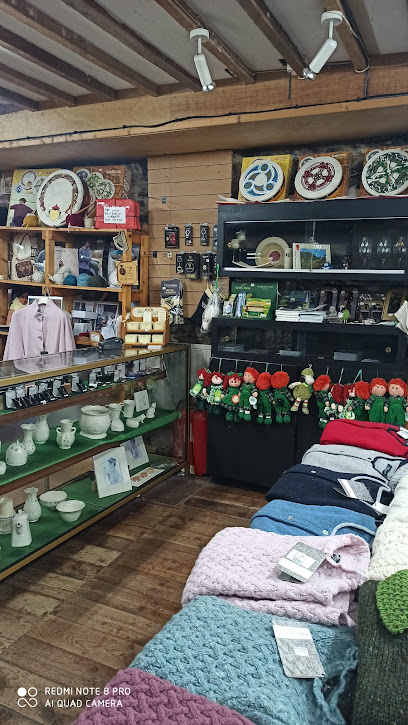
Sugar Mountain
Discover Sugar Mountain, a cozy coffee shop in Co. Wicklow, offering artisanal brews and stunning views, perfect for a relaxing getaway.
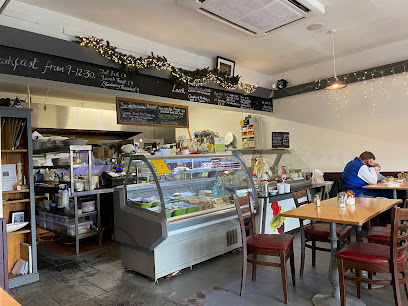
Enniskerry Village Store
Explore Enniskerry Village Store for unique gifts, local charm, and essential supplies in the heart of County Wicklow.
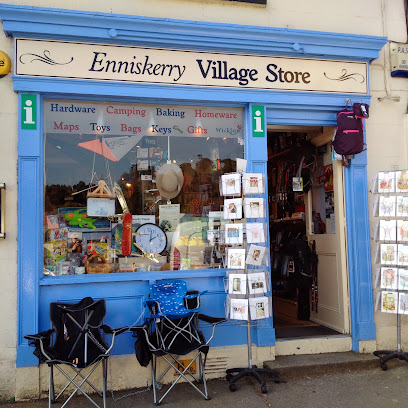
Stan & Tony's Discount Store
Discover unbeatable bargains at Stan & Tony's Discount Store in Wicklow, your go-to spot for school supplies, party essentials, and unique finds.
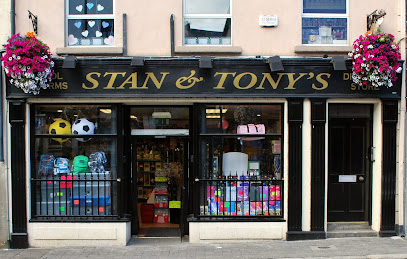
Sweet Boutique Greystones
Discover Sweet Boutique in Greystones, a charming candy store blending sweet treats, unique gifts, and local flavors for an unforgettable shopping experience.
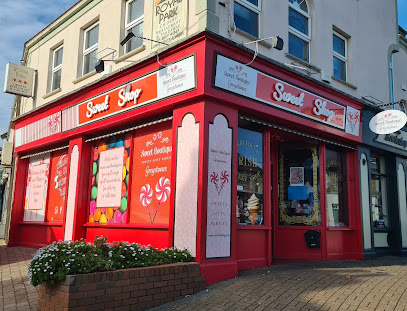
Archeryshop.ie
Explore the enchanting world of archery at Archeryshop.ie, where adventure and expert guidance meet in the heart of Co. Wicklow.
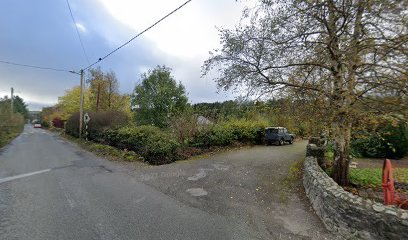
Distrikt by Mia - Interior, Gift and Clothing Concept Store
Explore the charm of Distrikt by Mia, Wicklow's premier concept store for unique gifts, stylish clothing, and exquisite home decor.
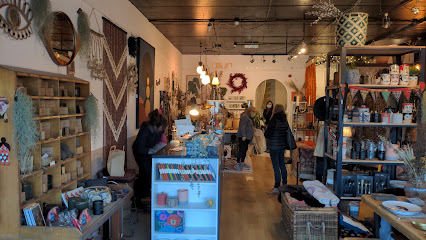
Olannmor
Discover the artistry of knitting at Olannmor, Co. Wicklow's premier knit shop offering expert instruction and high-quality yarns.
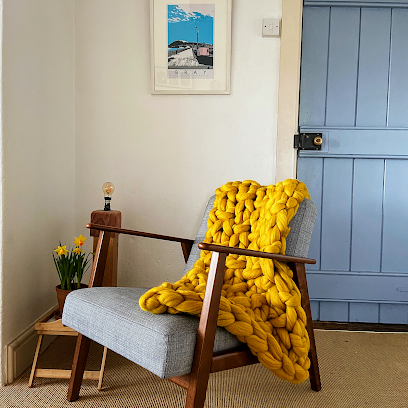
Greystones Antiques
Discover unique antiques, handcrafted gifts, and exquisite jewelry at Greystones Antiques in Co. Wicklow, where each piece tells a story.
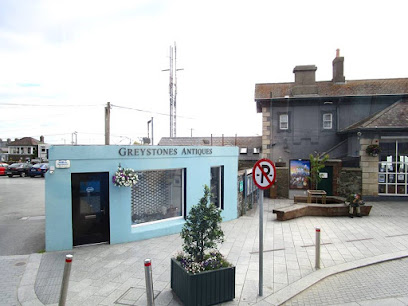
Wardrobe Boutique Wicklow
Explore Wardrobe Boutique Wicklow for the latest women's fashion trends and unique accessories in an elegant shopping atmosphere.
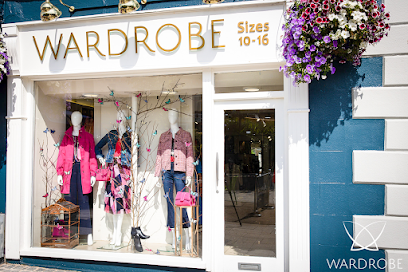
Essential bars & hidden hideouts
Johnnie Fox's Pub
Experience the heart of Irish culture at Johnnie Fox's Pub, a historic venue offering traditional food, live music, and stunning mountain views.
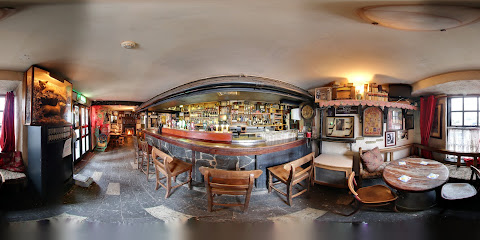
Wicklow Heather Restaurant
Discover the flavors of Ireland at Wicklow Heather Restaurant, where local ingredients meet breathtaking views in County Wicklow.
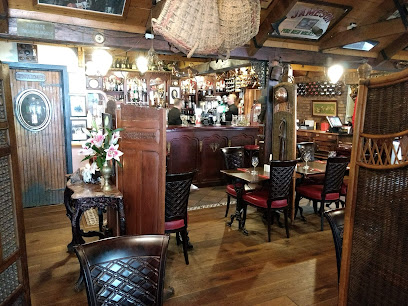
The Bridge Tavern
Discover the charm of The Bridge Tavern in Wicklow, where exquisite gastropub cuisine meets the warmth of Irish hospitality.
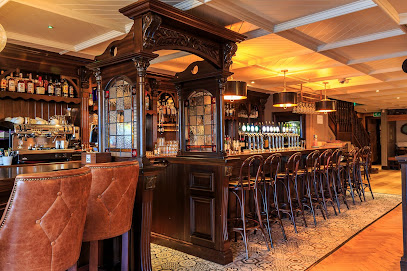
The Brass Fox Wicklow
Experience the vibrant atmosphere and exquisite flavors of The Brass Fox, Wicklow's premier gastropub and cocktail bar.
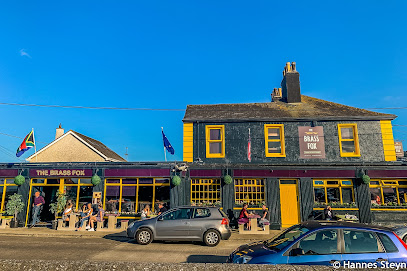
The Hollywood Inn
Experience the heart of Irish hospitality at The Hollywood Inn, a cozy pub in Co. Wicklow with delightful food and drinks.
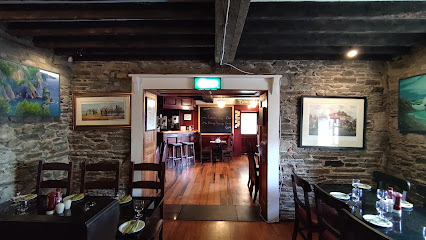
Phil Healy's Pub
Experience authentic Irish hospitality at Phil Healy's Pub in Wicklow, where delicious grilled dishes and live music create an unforgettable atmosphere.
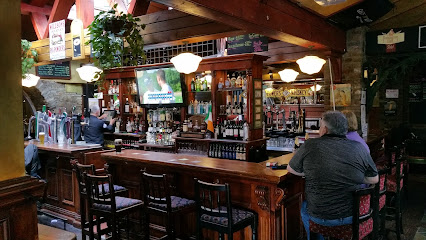
Grove Bar
Experience the warmth of Irish hospitality at Grove Bar, a charming pub in Delgany, County Wicklow, serving delicious food and drinks in a cozy atmosphere.
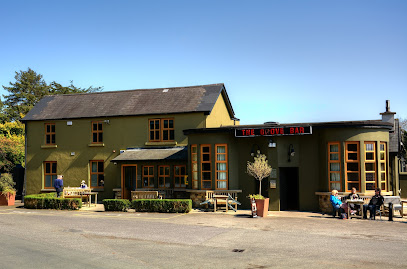
Byrne & Woods Bar & Restaurant
Discover Byrne & Woods Bar & Restaurant, a charming spot in Co. Wicklow for traditional Irish dining and vibrant pub culture.
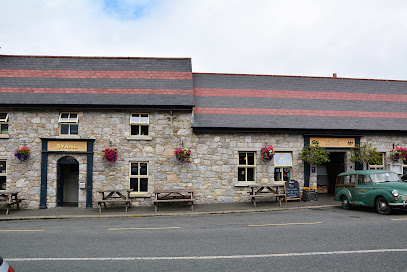
Mickey Finn's Pub
Discover the charm of Mickey Finn's Pub in Redcross, where authentic Irish brews and delicious cuisine create unforgettable memories.
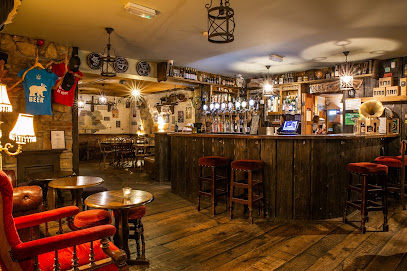
Ernie's Bar
Experience the heart of Wicklow at Ernie's Bar, where local charm meets modern hospitality in a cozy Irish pub setting.
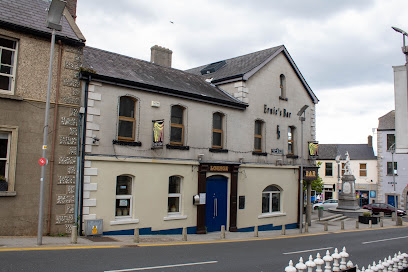
Tóchar House
Discover the charm of Tóchar House, a cozy bar in Roundwood, Wicklow, perfect for unwinding after a day of exploring stunning landscapes.
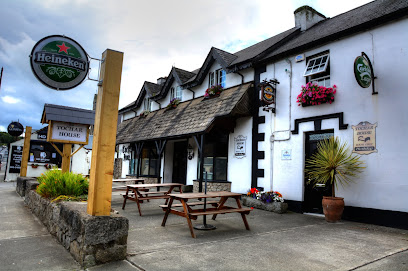
DJ Cullen Lake View Lounge
Discover DJ Cullen Lake View Lounge: A cozy pub in Co. Wicklow offering stunning lake views, delicious food, and a taste of Irish culture.
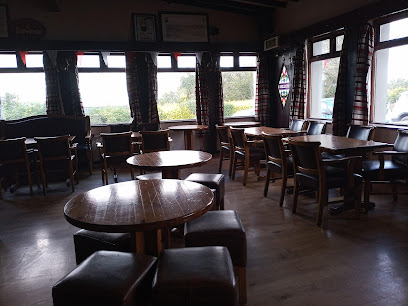
Fenton's Imaal Bar & Lounge Glen of Imaal Bar
Experience the warmth of Irish hospitality at Fenton's Imaal Bar & Lounge in the stunning Glen of Imaal, County Wicklow.
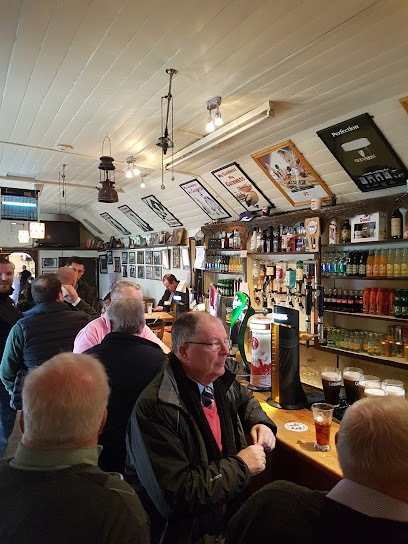
Fitzpatricks Bar
Experience the heart of Irish hospitality at Fitzpatrick's Bar in Wicklow, where cozy ambiance meets delightful drinks and local culture.
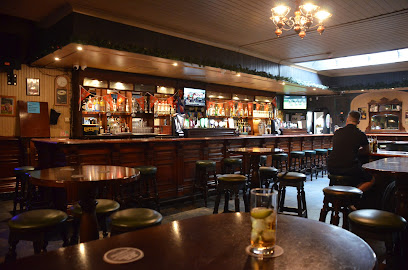
Tá Sé's
Discover Tá Sé's in Wicklow - a cozy bar offering craft drinks, lively atmosphere, and a taste of local culture nestled in beautiful Ireland.
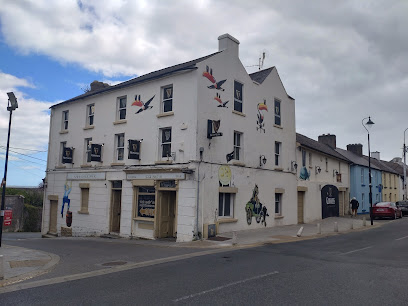
Local Phrases about Wicklow Mountains
-
- HelloDia dhuit
[dee-ah gwit] - GoodbyeSlán
[slawn] - YesTá
[taw] - NoNíl
[neel] - Please/You're welcomeLe do thoil
[leh duh hull] - Thank youGo raibh maith agat
[goh rev mah ah-gut] - Excuse me/SorryTá brón orm
[taw brohn orum] - How are you?Conas atá tú?
[kun-us ah-taw too] - Fine. And you?Tá mé go maith. Agus tú?
[taw may goh mah. ah-gus too] - Do you speak English?An bhfuil Gaeilge agat?
[ahn will gayl-guh ah-gut] - I don't understandNí thuigim
[nee hug-im]
- HelloDia dhuit
-
- I'd like to see the menu, pleaseBa mhaith liom an mianu a fheiceáil, le do thoil
[bah wyh lum on mee-noo ah eck-ahl, leh duh hull] - I don't eat meatNí ithim feoil
[nee ih-him fuh-il] - Cheers!Sláinte!
[slawn-cheh] - I would like to pay, pleaseBa mhaith liom íoc, le do thoil
[bah wyh lum eek, leh duh hull]
- I'd like to see the menu, pleaseBa mhaith liom an mianu a fheiceáil, le do thoil
-
- Help!Cosaint!
[ko-sont] - Go away!Imigh uaim!
[ih-mee oom] - Call the Police!Glan an Gárda!
[glan on gawr-dah] - Call a doctor!Glan dochtúir!
[glan duck-too-ir] - I'm lostTá mé caillte
[taw may kail-cheh] - I'm illTá mé tinn
[taw may thin]
- Help!Cosaint!
-
- I'd like to buy...Ba mhaith liom ceannach...
[bah wyh lum kyah-nukh] - I'm just lookingNíl ach ag faire
[neel okh eg fah-reh] - How much is it?Cé mhéad atá air?
[kay vade ah-taw air] - That's too expensiveTá sé sin ró-dhaor
[taw shay shin row-gheer] - Can you lower the price?An féidir leat an praghas a ísliú?
[ahn fay-dur lat on prah-gus ah eesh-loo]
- I'd like to buy...Ba mhaith liom ceannach...
-
- What time is it?Cén t-am é?
[kayn tahm ay] - It's one o'clockTá a haon a chlog
[taw ah hayn ah khlog] - Half past (10)Leathuair tar éis a deich
[lah-hoo-ir tar aysh ah deh] - MorningMaidin
[mah-jin] - AfternoonTráthnóna
[traw-noh-nah] - EveningTráthnóna
[traw-noh-nah] - YesterdayInné
[in-ay] - TodayInniu
[in-yoo] - TomorrowAmárach
[ah-maw-rakh] - 1A haon
[ah hayn] - 2A dó
[ah doh] - 3A trí
[ah tree] - 4A ceathair
[ah kyah-hir] - 5A cúig
[ah koo-ig] - 6A sé
[ah shay] - 7A seacht
[ah shakht] - 8A hocht
[ah hukht] - 9A naoi
[ah nwee] - 10A deich
[ah deh]
- What time is it?Cén t-am é?
-
- Where's a/the...?Cá bhfuil a/an...?
[kaw will ah/ahn] - What's the address?Cad é an seoladh?
[kahd ay ahn sho-lah] - Can you show me (on the map)?An bhfuil tú in ann é a thaispeáint (ar an léarscáil)?
[ahn will too in on ay ah hahsh-paynt (ar on lare-skawl)] - When's the next (bus)?Cathain atá an chéad (bus)?
[kah-hin ah-taw on khayd (bus)] - A ticket (to ....)Ticéad (go dtí ....)
[tick-ayd (goh dee)]
- Where's a/the...?Cá bhfuil a/an...?
History of Wicklow Mountains
-
The Wicklow Mountains have been inhabited since prehistoric times, with evidence of early human settlements and megalithic monuments scattered throughout the landscape. The most notable of these is the Browne's Hill Dolmen, a massive portal tomb believed to date back to around 3000 BCE. These ancient structures offer a glimpse into the lives and spiritual practices of the early inhabitants of the region.
-
One of the most significant historical sites in the Wicklow Mountains is Glendalough, an early Christian monastic settlement founded by St. Kevin in the 6th century. The 'Valley of the Two Lakes' became one of the great centres of learning in Ireland, attracting scholars from across Europe. The remains of this monastic city include a round tower, stone churches, and a cathedral, reflecting its historical and religious importance.
-
In the 8th and 9th centuries, the Wicklow Mountains and its settlements, including Glendalough, faced numerous Viking incursions. These Norse invaders plundered the region, destroying many of its treasures. Despite this, the resilient monastic communities rebuilt and continued to thrive, leaving behind a rich tapestry of stories and artifacts from this turbulent period.
-
During the medieval period, the Wicklow Mountains were dotted with castles and strongholds, constructed by both Gaelic chieftains and Norman invaders. These fortresses played crucial roles in the territorial conflicts and power struggles of the time. Notable examples include the remains of Black Castle in Wicklow Town and the fortified manor house at Ballinacor.
-
The Wicklow Mountains were a hotbed of activity during the 1798 Rebellion against British rule. The rugged terrain provided an ideal hiding place for Irish rebels, including the famous guerrilla leader Michael Dwyer. The mountains became a symbol of resistance and defiance, with numerous skirmishes and battles taking place in this dramatic landscape.
-
The 19th century brought significant economic changes to the Wicklow Mountains. The construction of the Military Road between 1800 and 1809, intended to flush out remaining rebels, opened up the area to more extensive travel and trade. Additionally, the area's natural resources, such as timber and granite, were exploited more intensively, leading to the development of small industries and communities.
-
In 1991, the Wicklow Mountains National Park was established to preserve the unique landscape, biodiversity, and cultural heritage of the region. Covering over 20,000 hectares, the park encompasses a variety of habitats, including peat bogs, heaths, and woodlands. It also protects many historical sites, ensuring that the rich history of the Wicklow Mountains is preserved for future generations to explore and appreciate.
Wicklow Mountains Essentials
-
The Wicklow Mountains are located just south of Dublin, making them easily accessible from the capital city. The nearest airport is Dublin Airport, approximately 50 kilometers away. From Dublin, you can take a train to Bray or Greystones and then switch to local buses or taxis to reach the heart of the mountains. Alternatively, you can rent a car and take the M50 and N11 roads for a scenic drive.
-
While visiting the Wicklow Mountains, having a car is the most convenient way to explore the area, as it allows flexibility to visit remote spots. There are several car rental services available in Dublin and its surroundings. Public buses also operate in the area, but they may not reach all attractions. Taxis and local tours are other viable options for getting around.
-
The official currency in Ireland is the Euro (EUR). Credit and debit cards are widely accepted in most hotels, restaurants, and larger shops. However, it is advisable to carry some cash, especially if you plan to visit smaller villages or remote areas where card payments might not be accepted. ATMs are available in the larger towns around the Wicklow Mountains.
-
The Wicklow Mountains are generally safe for tourists, but standard precautions should be taken. Avoid hiking alone, especially in remote areas, and always inform someone of your travel plans. Keep an eye on your belongings in crowded places. While there are no specific high-crime areas targeting tourists, it is always best to stay vigilant and aware of your surroundings.
-
In case of emergency, dial 999 or 112 for immediate assistance. The local Garda (police) stations and medical facilities are available in towns like Bray and Wicklow. It is recommended to have travel insurance that covers medical emergencies. For minor health issues, there are pharmacies in the larger towns where you can purchase over-the-counter medications.
-
Fashion: Do wear layered clothing suitable for changing weather conditions; waterproof gear is highly recommended. Avoid wearing high heels or non-sturdy footwear when hiking. Religion: Do respect local customs and traditions, especially when visiting religious sites such as Glendalough. Public Transport: Do be respectful and offer your seat to elderly passengers. Don’t eat or drink on public transport. Greetings: Do greet people with a friendly 'hello' or 'hi.' A handshake is customary in formal settings. Eating & Drinking: Do try local delicacies and accept food offerings graciously. Don’t refuse hospitality, as it is considered impolite.
-
To experience the Wicklow Mountains like a local, consider visiting the area during off-peak times to avoid crowds. Engage with locals at pubs and small shops; they are often willing to share insights about the area's history and hidden gems. Don’t miss exploring the lesser-known trails and viewpoints for a more serene experience. If you enjoy fishing, the lakes and rivers in the area offer excellent opportunities for catching trout and salmon.
Nearby Cities to Wicklow Mountains
-
Things To Do in Dublin
-
Things To Do in Drogheda
-
Things To Do in Kilkenny
-
Things To Do in Wexford
-
Things To Do in Waterford
-
Things To Do in Athlone
-
Things To Do in Port St Mary
-
Things To Do in Port Erin
-
Things To Do in Limerick
-
Things To Do in Castletown
-
Things To Do in Ballasalla
-
Things To Do in Peel
-
Things To Do in Belfast
-
Things To Do in Douglas
-
Things To Do in Ennis













